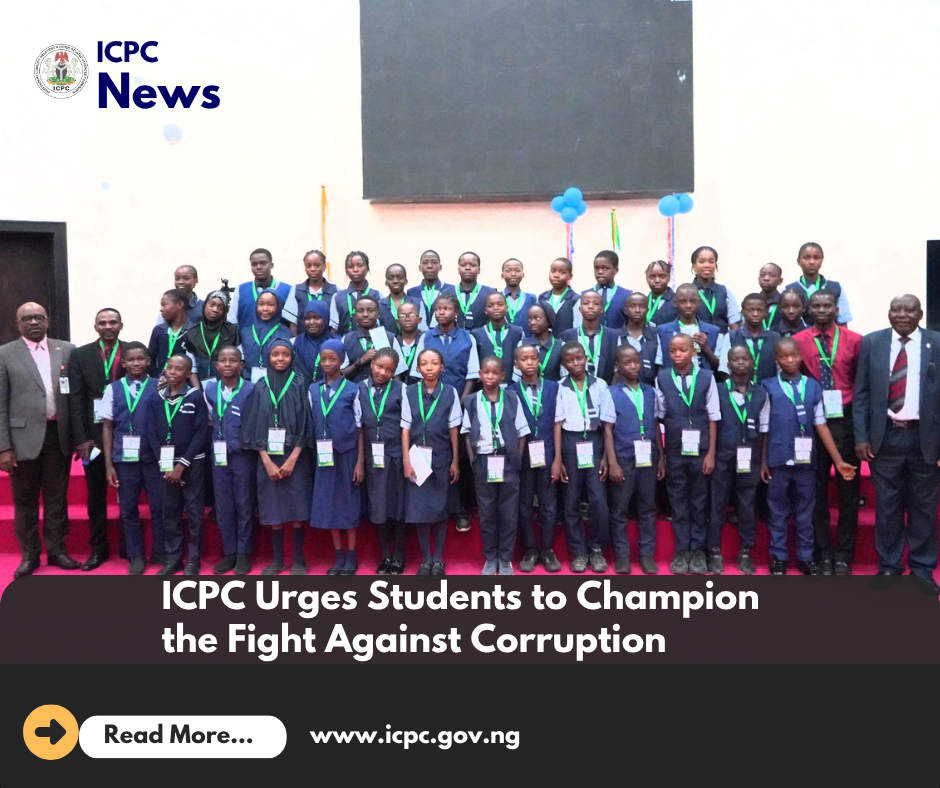The Independent Corrupt Practices and Other Related Offences Commission (ICPC) has called on Nigerian students to take the lead in the national campaign against corruption by upholding the values of integrity, honesty, and accountability.
This charge was delivered by the Director, Public Enlightenment and Education Department, Mr. Demola Bakare, fsi, who was represented by Dr. Oluwasina Babasola, Deputy Director in the Department, during an academic excursion by students of Oloye Comprehensive College, Abuja, to the ICPC Headquarters in Abuja.
Welcoming the students, Mr. Bakare underscored the importance of nurturing integrity as a guiding principle, urging the young visitors to see themselves as the future leaders of Nigeria and vital partners in the nation’s anti-corruption efforts.
He noted that any act that violates laws or moral standards such as examination malpractice constitutes corruption, and encouraged the students to become ambassadors of integrity by promoting ethical behavior wherever they go.
In his presentation, Dr. Babasola educated the students on the history and establishment of the Commission, highlighting its three core functions enforcement, prevention, and public enlightenment as provided in Section 6 (a–f) of the Corrupt Practices and Other Related Offences Act, 2000.
He further explained that the Public Enlightenment and Education Department was responsible for mobilizing and sensitizing citizens on the dangers of corruption while promoting ethical conduct in both public and private life.
Speaking on behalf of the visiting school, the Second Vice Principal, Mr. Jacob Akintade, expressed appreciation to the Commission for the warm reception and insightful engagement.
Mr. Akintade explained that Oloye Comprehensive College was committed to instilling values of integrity and discipline among its students and pledged that the visit would further strengthen their understanding of national ethics and anti-corruption principles.
Representatives from various ICPC departments including the Administration and Human Resource Department, Constituency and Executive Projects Tracking Initiative (CEPTI), Proceeds of Crime Department, Systems Study and Review Department (SSRD), and the Computer Security and Forensics Department (CSFD) also briefed the students on their respective mandates and contributions to the Commission’s overall objectives.
The interactive session featured a lively question-and-answer segment, during which the students’ sought clarifications on corruption-related issues and the Commission’s activities.
The visit concluded with a group photograph and a commitment by the ICPC to facilitate the establishment of a Student Anti-Corruption Club (SAC) in Oloye Comprehensive College, Abuja, as part of its ongoing efforts to promote integrity, transparency, and accountability among young Nigerians.


